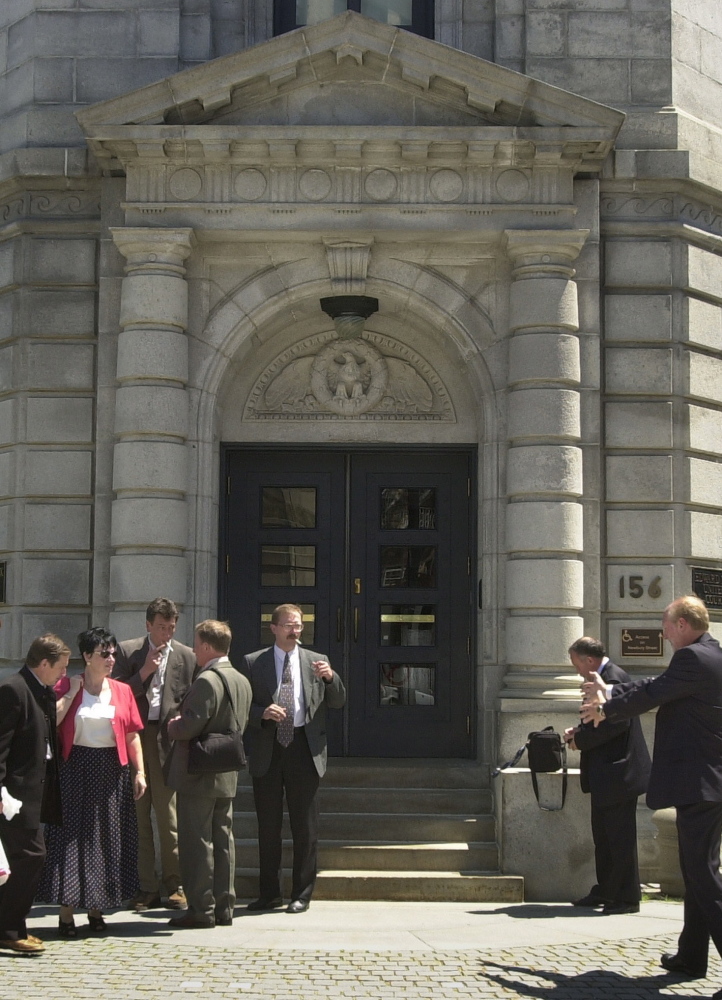With Russia figuring heavily in the news in recent days, this year the Camden Conference has adopted the theme of “Russia Resurgent” for its 28th annual event.
So much has changed since the early 1990s, when the collapse of the Soviet Union sparked a time of great excitement for Russians, as well as for non-Russians who were familiar with Russian history and culture.
At the time many observers were optimistic that Russia could emerge from the stagnation and relative isolation of the communist years to a new era as a modern, prosperous democracy in the Western tradition.
Those observers knew that Russia could never evolve into a functional democracy with a robust market economy without adopting the rule of law as a core national principle.
The early post-communist period saw a great many people contributing to make rule of law a fundamental part of Russia’s DNA. Multilateral institutions like the World Bank and the International Monetary Fund, the United States, other governments and nonprofit organizations all funded consultants, teachers and experts in many disciplines to assist the new Russian government in establishing a market economy and the democratic institutions necessary to maintain it. Some of this assistance was rooted in the desire by Western governments to ensure that Russia would not revert to communism.
NAIVE AND IDEALISTIC
However, many of these efforts to promote Western institutions and traditions in Russia proved to be naïve and idealistic. By the mid-2000s, as obstacles persisted and key Russian leaders regressed to Soviet-era ways of thinking, those involved in fostering rule of law in Russia were becoming aware of the futility of their efforts.
No case illustrates the failure of Russia to evolve as a rule of law state better than the public vendetta waged by President Vladimir Putin against the Yukos Oil Co. and one of its owners, Mikhael Khodorkovsky.
In 2003, Khodorkovsky – the richest person in Russia at the time – was arrested, spending the next decade in Russian prisons. In 2004, Yukos Oil Co. was presented with billions of dollars in tax reassessments by Russian tax authorities even as Russian courts froze its assets, making it impossible for Yukos to pay its newly imposed tax liabilities.
Yukos was declared bankrupt in 2006 and terminated as a legal entity in 2007. Most of Yukos’ former assets ended up under the control of Rosneft and Gazprom, Russian government-controlled oil companies. The shareholders of Yukos were paid nothing for its assets.
An arbitration was initiated in 2005 by Yukos shareholders against the Russia at the International Court of Arbitration in the Hague. Last summer three distinguished international arbitrators ruled unanimously that the Russia had violated the Energy Charter Treaty (which Russia signed in 1994) by expropriating Yukos’ assets without paying reasonable compensation to its shareholders.
In the course of the arbitration panel’s 500-plus page decision, the arbitrators thoroughly reviewed the actions of the Russian government and those of the Russian courts in dismembering Yukos while jailing several of its founders, including Khodorkovsky, harassing its attorneys and accountants and fabricating tax claims.
The panel held that these actions could only be understood as efforts to destroy Yukos and expropriate its assets. The arbitrators awarded the shareholders in excess of $50 billion enforceable against the Russian Federation: the largest private arbitration award in history.
STARK EXAMPLE
The Yukos case represents just one example of how law has been wielded in Russia not as a force for order and democracy, but as a bludgeon to achieve the political and economic objectives of the state and the men who lead it.
There are many, many other examples; the Yukos case is especially stark, as it features a respected, impartial arbitration panel explaining in great detail how the Russian law and the Russian courts were misused to seize Yukos’ assets.
Under its current leadership, Russia is far from a rule of law state, a condition that shows no signs of changing in the near future.
While Russia may indeed be resurgent in certain contexts, when it comes to the tremendous promise of those first post-Soviet days – the opportunity for Russia to emerge from its stunted past a freer, more democratic, more just society – a more appropriate theme for this year’s Camden Conference might be “Russia Reverting.”
Send questions/comments to the editors.



Success. Please wait for the page to reload. If the page does not reload within 5 seconds, please refresh the page.
Enter your email and password to access comments.
Hi, to comment on stories you must . This profile is in addition to your subscription and website login.
Already have a commenting profile? .
Invalid username/password.
Please check your email to confirm and complete your registration.
Only subscribers are eligible to post comments. Please subscribe or login first for digital access. Here’s why.
Use the form below to reset your password. When you've submitted your account email, we will send an email with a reset code.